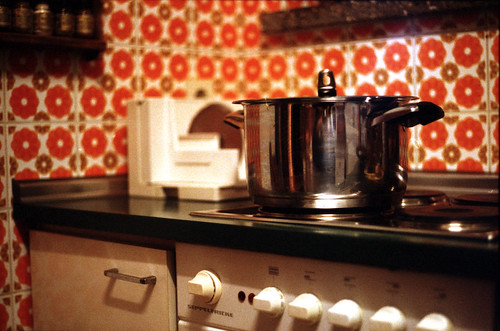Guest post by Ally
The kitchen is one of the most frequently used rooms in your home, whether you are whipping up a snack or cooking a three course dinner for two. So it stands to reason that this is also the place where the most energy is wasted. Making some simple changes in the way you prepare your food and use kitchen your appliances can help you to save a lot of money on utility bills each year.

The Kitchen by eightfivezero
The following tips and advice will help you to conserve as much energy as possible in the kitchen, and subsequently lower your monthly bills.



